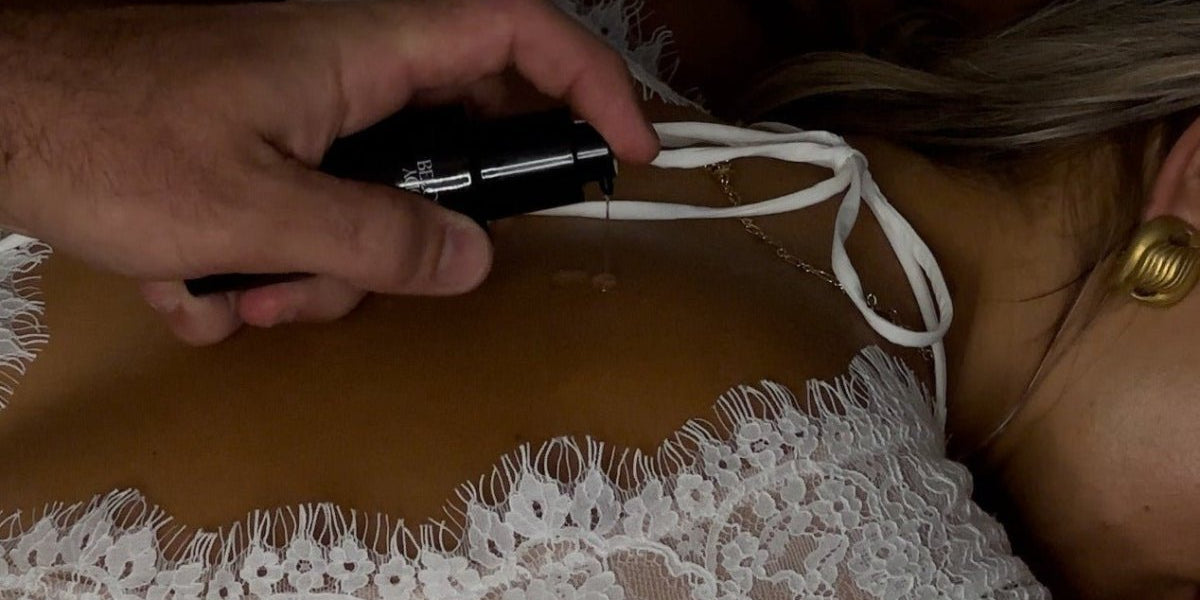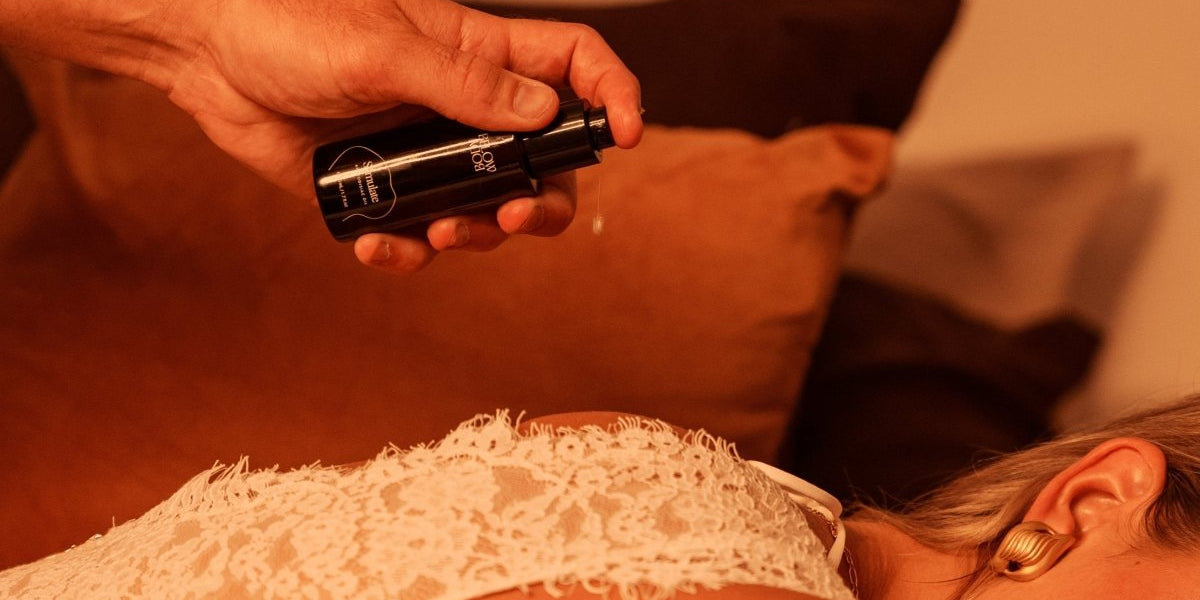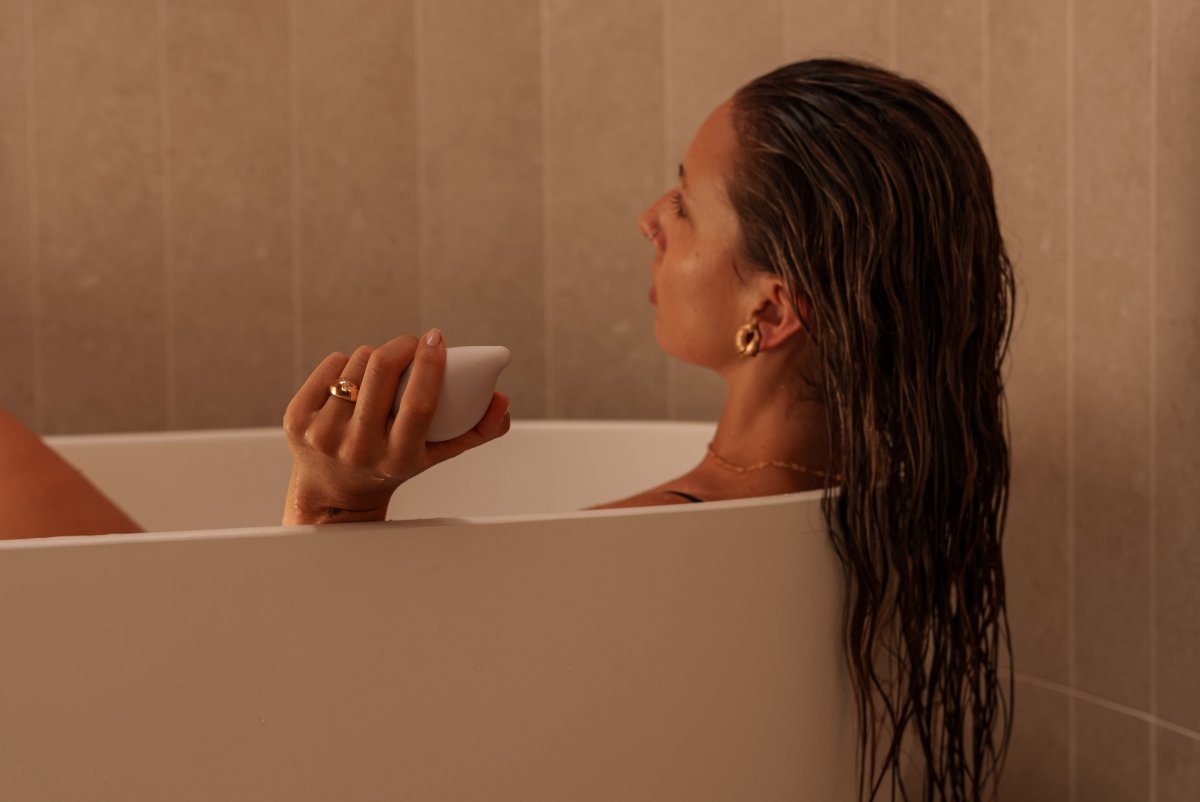Unleashing the taboo: Period care and sex - how to navigate the intimacy during your time of the month

Periods are a natural part of a woman's reproductive cycle, but they can often make sex feel taboo or uncomfortable. Many women feel self-conscious about having sex during their period and may avoid it altogether. However, with a little knowledge and preparation, it's possible to have enjoyable, fulfilling sex during your time of the month. In this blog post, we'll explore how to navigate period care and sex, empowering women with the information they need to make informed decisions about their bodies.
1. Communicate with your partner
The key to navigating period sex is open communication with your partner. Let them know how you're feeling and what you're comfortable with. Some women prefer to avoid sex during their period altogether, while others find it enjoyable. Discussing your preferences and boundaries ahead of time can help ensure that you're both on the same page.
Effective communication helps foster a deeper understanding between you and your partner. It allows you to express your needs, fears, and desires, leading to a more supportive and respectful relationship.
2. Experiment with different positions
If you decide to have sex during your period, experimenting with different positions can help you find one that's comfortable for you. For example, positions where you're on top can help control the flow of menstrual blood and reduce mess. Alternatively, shower sex can be a great way to feel clean and refreshed during your period.
Trying out various positions can make the experience more enjoyable and reduce potential discomfort. It's about finding what works best for your body and your partner's preferences.
3. Use protection
While it's rare, it is possible to get pregnant during your period. Additionally, having sex during your period can increase your risk of sexually transmitted infections (STIs). Using protection, like condoms or dental dams, can help reduce these risks and provide peace of mind.
Safe sex is crucial at all times, and this includes during your period. Using protection not only guards against unwanted pregnancy but also safeguards your health.
4. Manage your period symptoms
Periods can come with a range of symptoms, like cramps, bloating, and mood swings. Managing these symptoms ahead of time can help make sex more enjoyable. For example, taking pain relief medication or using heat therapy can help alleviate cramps. Additionally, engaging in self-care practices, like exercise or meditation, can help improve your mood and reduce stress.
Understanding your body and its response to your menstrual cycle is key. By managing your symptoms effectively, you can ensure a more pleasurable and comfortable sexual experience.
5. Embrace your body
Finally, it's important to embrace your body during your period. Many women feel self-conscious about their menstrual blood, but it's a natural part of the menstrual cycle. Using dark towels or sheets and having a towel nearby can help you feel more comfortable and relaxed during sex. Additionally, wearing comfortable, supportive underwear can help you feel more confident.
Embracing your body and its natural functions is a crucial aspect of self-love and self-acceptance. It's important to remember that your body is amazing, and menstruation is a beautiful part of the female experience.
FAQs
1. Why is period sex considered taboo? Period sex may be considered taboo due to cultural, religious, or societal norms that view menstruation as unclean or impure. Additionally, misinformation and a lack of education about menstruation can contribute to misunderstandings and negative attitudes towards period sex.
2. Are periods still a taboo subject? In some societies and cultures, periods are still considered a taboo subject. However, increased awareness, education, and open discussions are slowly helping to break down these barriers and reduce the stigma surrounding menstruation.
3. How did females deal with periods in the past? In the past, women used various methods to manage their periods, such as cloth or rags, which were washed and reused, pads made from materials like wool, cotton, or plant fibers, and sponges or moss as absorbent materials. These methods varied depending on cultural practices and available resources.
4. What are taboo products? Taboo products refer to items or services that may be considered socially unacceptable or controversial due to cultural, religious, or societal norms. In the context of menstruation, taboo products might include menstrual cups, tampons, or other alternatives to traditional pads.
5. How did women in the 1800s deal with periods? In the 1800s, women typically used cloth or rags as makeshift pads to manage their periods. They would wash and reuse these materials, as disposable options were not yet available.
6. What did girls do on their period in the 1800s? Similar to adult women, girls in the 1800s would use cloth or rags as makeshift pads during their periods. In some cases, they might have been secluded from daily activities due to cultural or societal norms surrounding menstruation.
7. What did the first pad look like? The first commercially available disposable pad, introduced in the late 19th century, was called the "Lister's Towel: Sanitary Towel for Ladies." It was made from absorbent cotton and held in place by a belt. Early pads were bulky and not as discreet as today's options.
8. How did ladies deal with periods in the 1400s? In the 1400s, women likely used cloth, rags, or other absorbent materials, such as moss or wool, to manage their periods. These materials would be washed and reused, as disposable options were not available.
9. When did pads come out? Commercially available disposable pads were first introduced in the late 19th century. The first widely used disposable pad, Kotex, became available in the United States in the early 1920s. The design and materials have evolved significantly since then, with pads now being thinner, more absorbent, and more comfortable.
For personalised advice or medical concerns, please consult a doctor or qualified healthcare provider. Remember to always prioritise your comfort and well-being during your period, including during sexual activity.





